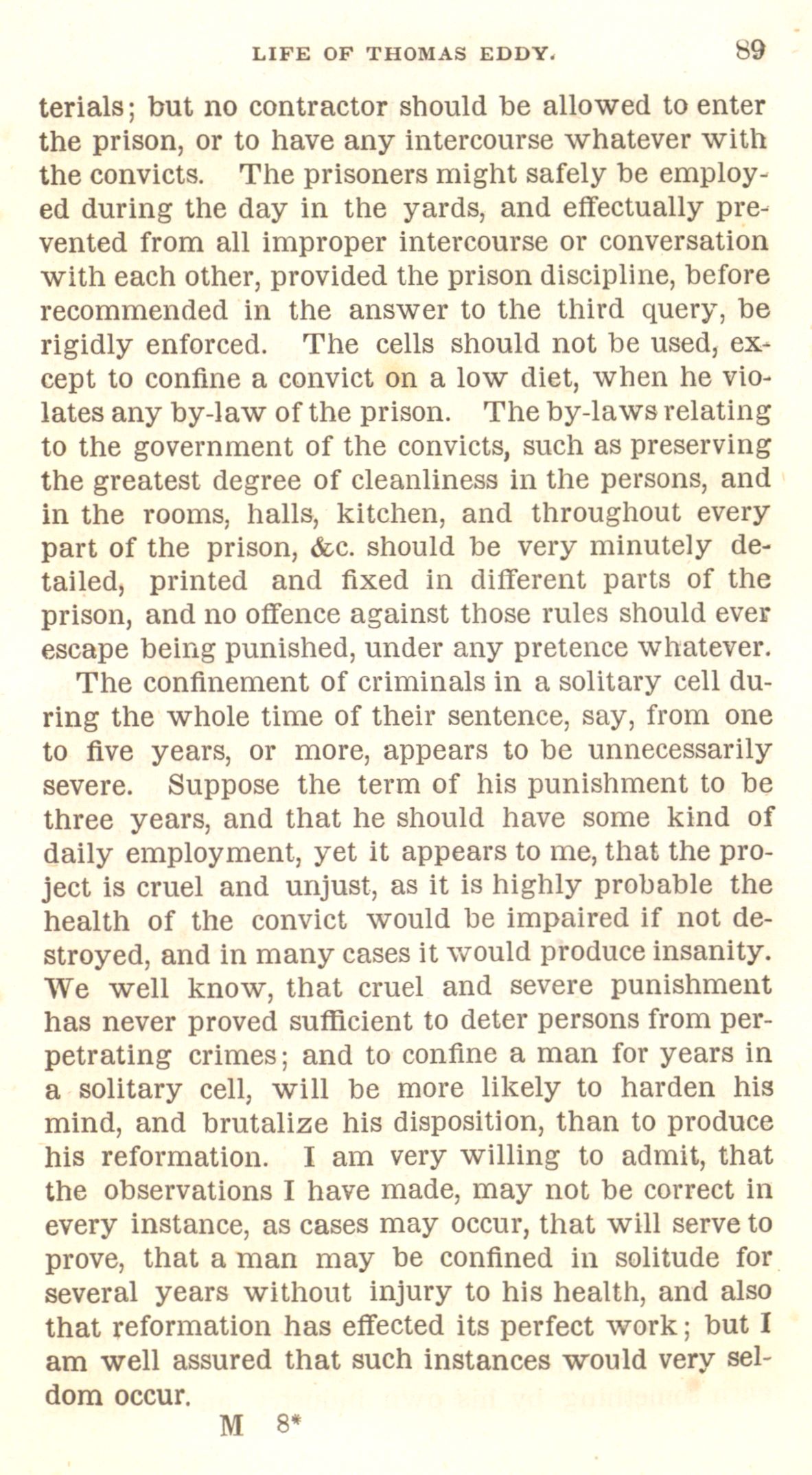terials; but no contractor should be allowed to
enter
the prison, or to have any intercourse whatever with
the
convicts. The prisoners might safely be employ-
ed during the day in
the yards, and effectually pre-
vented from all improper intercourse
or conversation
with each other, provided the prison discipline,
before
recommended in the answer to the third query, be
rigidly enforced. The cells should not be used, ex-
cept to confine
a convict on a low diet, when he vio-
lates any by-law of the
prison. The by-laws relating
to the government of the convicts,
such as preserving
the greatest degree of cleanliness in the
persons, and
in the rooms, halls, kitchen, and throughout
every
part of the prison, &c. should be very minutely
de-
tailed, printed and fixed in different parts of the
prison,
and no offence against those rules should ever
escape being
punished, under any pretence whatever.
The confinement of criminals in a solitary cell du-
ring the whole
time of their sentence, say, from one
to five years, or more,
appears to be unnecessarily
severe. Suppose the term of his
punishment to be
three years, and that he should have some kind of
daily employment, yet it appears to me, that the pro-
ject is
cruel and unjust, as it is highly probable
the health of the
convict would be impaired if not de-
stroyed, and in many cases it
would produce insanity.
We well know, that cruel and severe
punishment
has never proved sufficient to deter persons from
per-
petrating crimes; and to confine a man for years in
a
solitary cell, will be more likely to harden his
mind, and
brutalize his disposition, than to produce
his reformation. I am
very willing to admit, that
the observations I have made, may not
be correct in
every instance, as cases may occur, that will serve
to
prove, that a man may be confined in solitude for
several
years without injury to his health, and also
that reformation has
effected its perfect work; but I
am well assured that such
instances would very sel-
dom occur.

